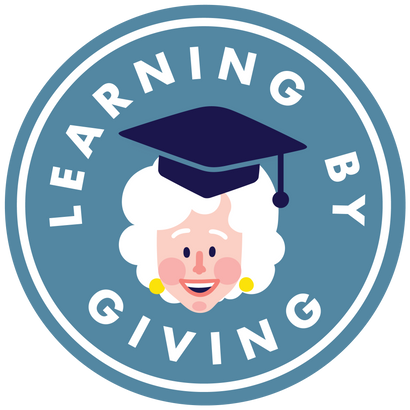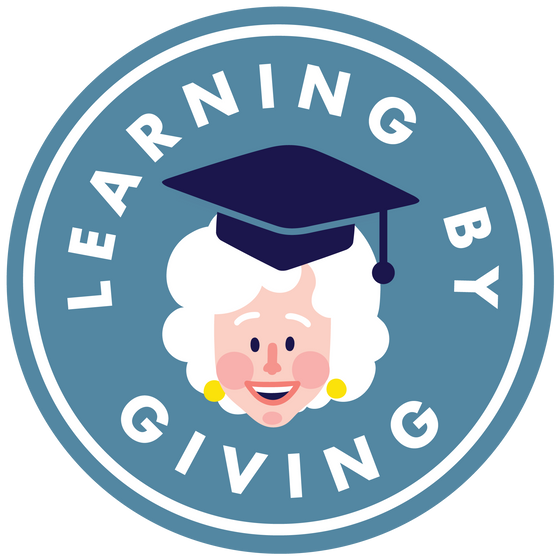Who am I in relation to Philanthropy?
Professor David Campbell

Giving is a very individual thing. Each person approaches it differently. So, is there a best way to give money away? I wouldn’t say so. However, as someone who has taught courses in philanthropy (where students have given away money) for more than ten years, I have some ideas about what it takes to give in ways that can be satisfying, or as I describe it to my students, “to do good well.”
Before you decide which organization(s) you want to receive your money, it’s important to answer a few basic questions, and these questions are the focus of this blog post.
Here’s where I’d start:
What are my core values? Perhaps the best place to start when you think about giving, is to reflect on what your core values are. By core values, I mean your most fundamental beliefs, the ideas that define who you are or how you see yourself in the world. Because values are so personal, there is no definitive list to pick from. But, here are some examples of values, taken from a list we’ve provided with this month’s content resources:
- Belonging. One way to state “belonging” as a value is to say that all people deserve to feel welcome and part of a community.
- Equity. Presenting equity as a value could mean that you believe all people deserve the same opportunities to succeed and find happiness in their lives.
- Self-Expression as a value could be that you believe in the importance of all people being able to express themselves and their distinct points of view.
It may be that you believe in all of these values (or others you see on our list). The challenge is to figure which three or so are most important to you. Which ones most shape how you see the world?
For me, for example, the value that most shapes my world view is a belief in the essential dignity of all people. My decision to donate to and serve on the board of an organization that works with people with disabilities grew out of that belief, specifically my concern that people with disabilities are too often ignored and looked past.
What issues most concern me? Values shape the actions we take, but each of us may see our values as best expressed on different issues. Nonprofit organizations exist to address a wide range of issues: the arts, hunger, homelessness, mental illness, the environment, global poverty, and animals to name a few. After you have identified your core values, it is important to identify the issues of greatest concern to you. For many people, those issues grow out of the values that matter most to them. But, core values can lead to interest in a wide range of different issues.
For example, to express my belief in the dignity of all people I could donate or take action on many issues besides disability, such as the resettlement of refugees, domestic violence, LGBTQ rights, and others. Your challenge is to determine what issues you care most about. In addition to values, the issues of interest to you may grow out of personal experiences, or the experiences of friends, or even from classes you’ve taken in school, books you’ve read, or clubs you belong to.
How do I define my community? Ideally, we give in ways that express our values and address the issues of greatest importance to us through nonprofit organizations that are part of our communities. After identifying your core values and the issues important to you, think about the community you are part of and what could be affected through your giving. Community is a broad concept, and you do not have to define it by geography. Your community may be where you live, but it may also be a group of people with whom you share an identity (as a millenial, an Irish-American, alumni of a particular educational institution) or an experience (cancer survivors, hikers, immigrants). For others, neither identity, experience, nor geography may matter, as “citizens of the world,” for whom only values and issues matter. Most important, however, think about what communities you are a part of and how you would define community to inform your giving choices.
How can I learn about my community. One of the biggest challenges we all face when we want to make a difference through giving is that we do not always know how we can help. You may know your core values, the issues you care about, and the community with which you identify. But, you may not know how to use the resources at your disposal to do good well. The risk for all of us who want to do good, then, is making uninformed choices. To avoid that risk means that we need to learn about the communities we would like to help. Here are some suggestions:
- Look for community needs assessments, like this one prepared by the Community Foundation for South Central New York (my home community).
- Talk to people. Philanthropy is a way to build community. Talk to the people who are part of the community that interests you. Look for ways to learn from them about how you can make a difference. There are lots of different people who have knowledge that you can use, not only leaders of nonprofit organizations, but also community leaders, elected officials and their staff, friends and family members active in the community or affected by the issue that interests you.
- Most importantly, educate yourself so that you make the most informed decision possible about how you can make a difference through your giving.
There is not one “right” way to give, but some ways are certainly better than others! The four questions I’ve listed above provide a good jumping off for starting your giving process.


